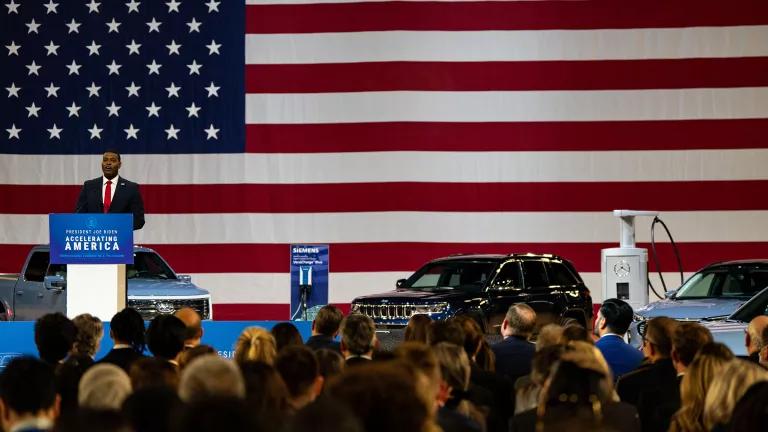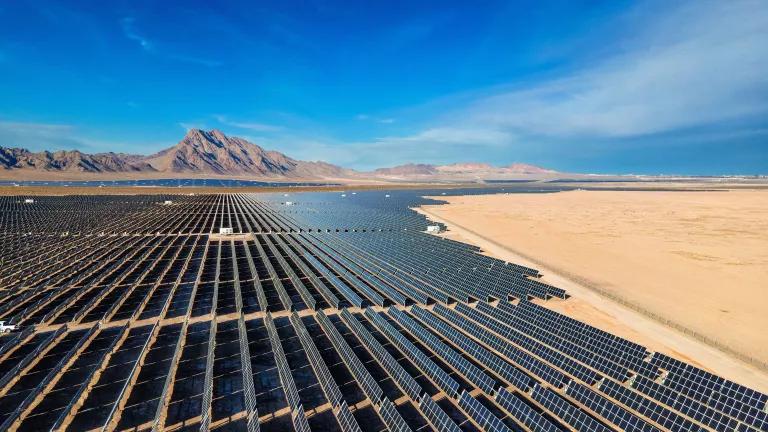Kamala and Joe, We’re Ready to Install EV Charging Stations
Coalition stands ready to realize administration's EV charging infrastructure goals.

Installing an EV charging station
Dennis Schroeder/NREL, 49470
Vice President Kamala Harris announced an action plan to speed the deployment of electric vehicle (EV) charging pursuant to the Bipartisan Infrastructure Law. The plan tasks federal agencies with initial steps needed to make President Biden’s vision for at least half-a-million EV charging stations real, and calls for a diverse body of stakeholders to work with the administration to realize and expand upon that goal. Thankfully, the people and organizations needed to put that steel-into-the-ground are already assembled.
As noted in the White House announcement:
As a result of the Bipartisan Infrastructure Law, the Department of Energy (DOE) and Department of Transportation (DOT) will establish a Joint Office of Energy and Transportation focused on deploying EV infrastructure, working hand-in-hand to collect input and guidance from industry leaders, manufacturers, workers, and other stakeholders that will ensure the national network provides convenient charging for all.
The National EV Charging Initiative stands ready and willing to be that partner, bringing together “automakers, power providers, electric vehicle and charging industry leaders, labor, and public interest groups to signal they are ready, willing and able to support federal action on a national charging network for light, medium and heavy-duty vehicles.”
That diverse group of key partners recently released a set of Guiding Principles, which go beyond milk-toast aphorisms typical of such consensus based work, and provide useful guidance for the administration as it takes the initial steps necessary to invest billions of dollars in EV charging infrastructure in a manner that advances our shared climate, air quality, equity, and economic development goals.
The topline principles are included below. The full document is available here.
- A new level of collaboration among all stakeholders is required to meet the Biden Administration’s goals for transportation electrification.
- The construction of EV infrastructure should build stronger, healthier, more prosperous communities by emphasizing community-driven solutions and increasing access to electric transportation options in historically underserved communities.
- There is an urgent need to scale up and broaden access to charging infrastructure to serve light-, medium- and heavy-duty EVs.
- The private sector should step up with unprecedented investment, augmenting government and utility funding to finance charging infrastructure that serves all communities and vehicle types.
- Construction of the charging ecosystem must create inclusive economic growth and good jobs at good wages.
- Electric utilities, regulators, charging providers, and stakeholders should work together to accelerate transportation electrification in a way that supports the electric grid and benefits all utility customers.
- The national EV charging ecosystem should provide a convenient, reliable, seamless, and secure experience for all drivers.
To a president who was inspired by JFK, the Initiative responds with a shared voice: “We are not here to ask what our country can do for us, but to ask what we can do to help unite our country with a seamless network of zero-emission charging infrastructure.”



